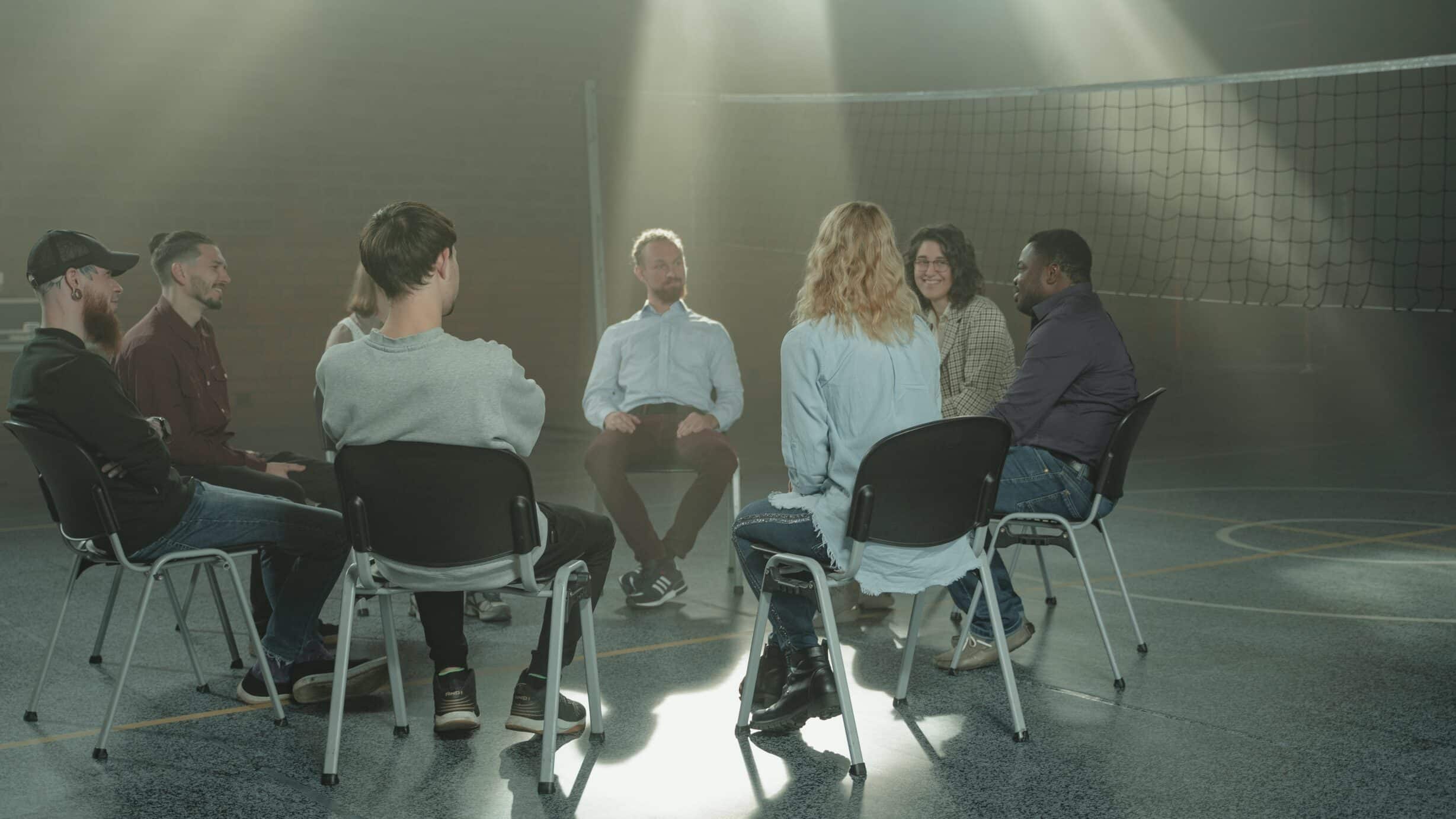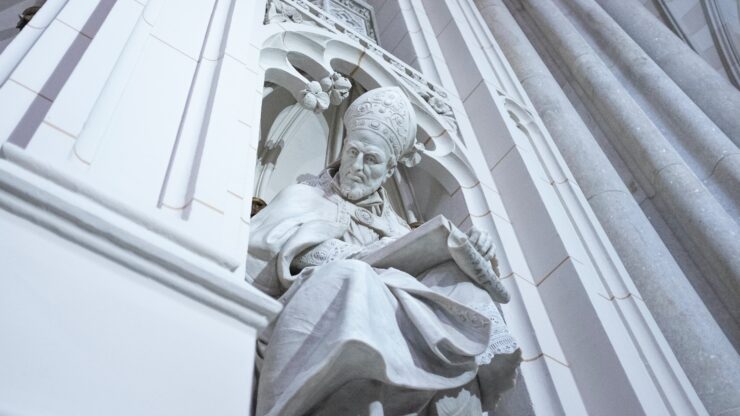Disciple Making Culture: What Is Most Important? Part 1 (featuring Brandon Guindon)

Disciple making is not only at the heart of the Christian faith; it’s vital to the growth and strength of the church. In a recent Disciple Maker’s Podcast with Brandon Guindon, Matt Dabbs explored this in-depth, dissecting the essence of disciple-making culture and its role in impactful ministry. Brandon is an experienced pastor and elder at Real Life Ministries in Texas and an author of four books related to discipleship. His insights and experiences offer an invaluable roadmap to embracing a culture of disciple-making. In their discussion, Brandon emphasized the importance of living and breathing discipleship in our daily lives. The objective isn’t just making disciples but making disciple-makers. This process goes beyond pastoral care and Bible teaching, branching out to include multiplication, and raising disciples capable of nurturing others.
View Brandon Guindon’s book on creating a Disciple Making Culture here: Disciple Making Culture
Brandon began by explaining his history as a disciple maker and a pastor, “I started as the small groups pastor at Real Life Ministries in Post Falls with Jim Putman and the team there. I didn’t grow up in the church and that was my first ministry. I was learning from Jim and some of the other guys there as we built a system at Real Life looking at the New Testament, looking at the book of Acts, and looking at books such as The Master Plan of Evangelism by Dr. Coleman. But, more importantly, we looked at the life of Christ, and asking the question, “What did he do with the 12 Apostles?”
Brandon continued, “We asked questions such as, ‘What kind of culture did he build with them? What did he do? How did that transfer to the early church? What did they live out? What did that look like?’ And then we tried to live out those principles. I did not know any different, so I had an advantage in that. I didn’t have a bunch of church background to wade through and Jim used to tease me that I was naive sometimes that because this is all I knew, but it was what I saw in the New Testament and us trying to live that out. That’s really where it started for me in small groups at Real Life; leading that first small groups ministry and seeing it grow to what it became, and then us planting churches out of it.”
Checkout the free eBook, Revisiting the Master Plan of Evangelism, here: https://discipleship.org/shop/revisiting-the-master-plan-of-evangelism/
Matt then added, “So, a lot of churches have small groups and that is wonderful in the sense of they already understand that that’s it’s good and it’s beneficial. But, what’s the difference between having a small group ministry and being intentional by having it be focused on Jesus styled disciple making?
Brandon answered, “I think there’s two parts of it. One is what is the end goal? Most of the time when I have conversations with pastors, leaders, elders, around the small groups issue, typically small groups in the church today are used for a Bible teaching or they’re used for fellowship, getting people together, being in relationship, pastoral care and connection. And so, the end goal is seen as, ‘We’re winning if we get everybody in small groups. If people we have in small groups, we’re winning.’”
Brandon continued, “Those are good things, but I don’t think that’s the correct metrics. The metrics should be, ‘Is there multiplication occurring? Are you raising up people that can disciple in a small group that are then multiplying and branching and making disciples? Are we making disciples or are we making disciple makers?’ So, there’s an adjustment there. Jesus was focused on, yes, come be my disciple, but ultimately it was them being disciple makers.”
“If we track the family tree from Jesus down through with His disciples, then apostles, and we get into the Timothys and those guys that are further down the line, the focus has always been on multiplication. So, in looking at your small group system and having the right end goal, that’s a critical piece of it.”
“The second critical piece of it is the environment and culture that you build within the group. Is it just for pastoral care? Or, is there a culture within the group that says we’re going to bring people in, we’re going to raise them up to be strong disciples, and then send them out? So, there’s two parts: the culture that’s built and the end goal. Those are two parts that I’ve had so many conversations about with leaders in 20 plus years in ministry.”
View our Disciple Making Culture Visual Guide here: https://discipleship.org/shop/disciple-making-culture-visual-introduction/
Matt then asked, “So tell us a little bit about how that translated from your experience of being mentored, and of being brought up through that system with Jim, and then launching out and intentionally starting a church with disciple making and disciple making culture at its core.”
Brandon answered, “So, one thing about me is I’m a bit rebellious. When somebody tells me I can’t do something, that pushes buttons in me. I’m just wired that way. So, what I heard early on was, ‘Well, what happened in post falls, that was just this miraculous thing. That Jim and the group, they just caught lightning in a bottle.’ I came to Texas I had a lot of leaders and people basically say to me, ‘Don’t expect to see here what you saw in Post Falls.’ That always really bothered me and I rebelled against that because that’s not what we see in the New Testament. What we see in the New Testament is the Holy spirit is always moving to see a disciple making movement accomplishing the Great Commission.”
“So, when we came here, I committed to living out the principles that we lived there; disciple making being a lifestyle, and training, developing, and equipping people. That’s what we focused on. It started in my living room and we just did just like they did in Post Falls and other church plants that we’ve planted. We just make disciples through a lifestyle and not programmatically. I just took what I’d learned there, what I’d seen there, what had been modeled and began living that out as best I knew how. Now, Real Life Ministries Texas has grown to be over 2000 people and we’ve planted a bunch of churches and it’s growing every day. It is different than Post Falls but in a good way.”
Matt added, “One of the things that people often want is a cookie cutter. They want a list of things to do. They want a very specific plan. People ask, ‘Okay, that happened in Post Falls, now it’s happening in Houston. How does it happen where I go to church?’ They say, ‘Give me your checklist. Give me your cookie cutter. Give me your branding kit and all that sort of stuff.’”
“But in reality, God is not calling everybody to do it exactly the same way every time. And so it seems like what I hear you saying is, ‘We have principles in mind and they ultimately come from scripture, not from, Jim Putman or Bobby Harrington or Brandon.’ Ultimately, they come from Jesus and living faithfully into that relationally every day. There’s no shortcut for that. The shortcut list mentality is saying, ‘Relieve me from doing the hard work of the every day and just show me how to get there as quickly as possible.’”
Brandon replied, “Just being brutally honest, I think that’s true. What you said is so important; there is no bypassing the hard work of getting into the lives of people because building a culture starts with you as the leader. It has to be a lifestyle that you’re committed to and it is hard work for sure. There are principles that we can take, but at the end of the day, it is a lifestyle that we live.”
Matt continued, “I think that’s important for people to hear because, in our American culture, there’s risk aversion, which I get. That’s human nature. We want to be comfortable, and we’re driven to comfortability, but that’s not growth. Growth is not found in comfortability. However, as Americans, we have so many options in front of us. People may feel like, they don’t want to do what you are saying unless you can guarantee they’ll get a 2,000-person church in seven years and are going to look good. I’m not saying it’s poisonous throughout all churches, I’m just saying our American culture tempts us to think that way. What I hear you saying is that there is no guarantee that it’s going to take off, but you have to be faithful.”
Listen to the entire podcast here: Disciple Making Culture — What Is Most Important in Creating a Disciple Making Culture (feat. Brandon Guindon)
Interested in taking and individual disciple maker assessment? Click here: https://church-multiplication.com/disciplemaker/
If you have enjoyed reading this, please consider joining our email list!











